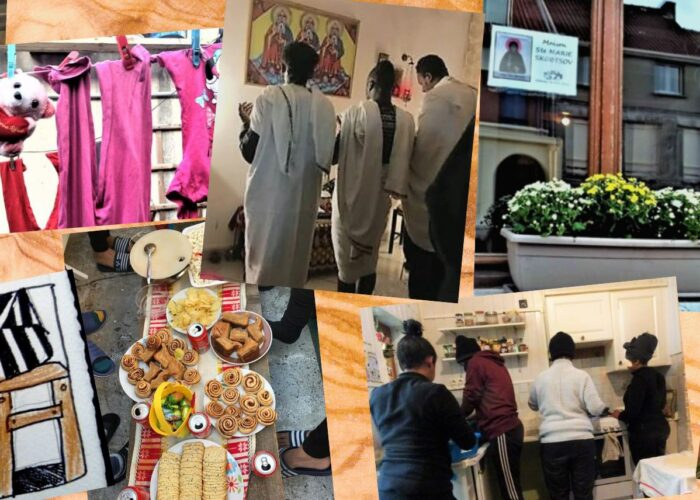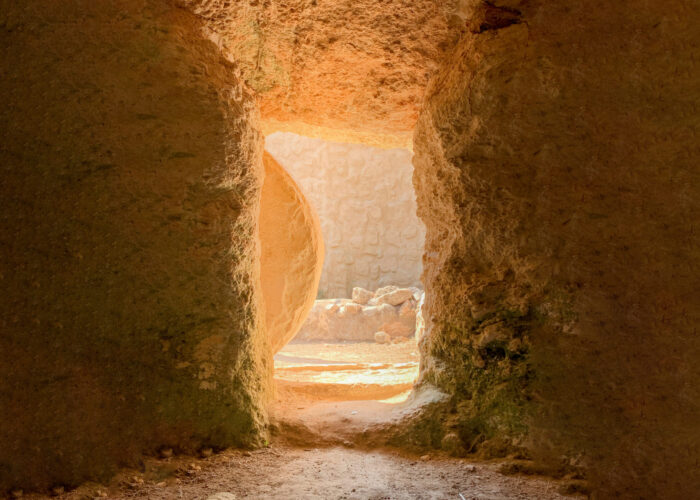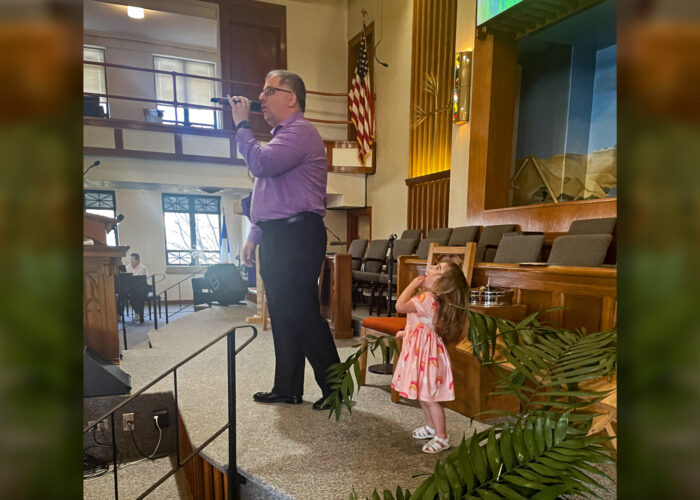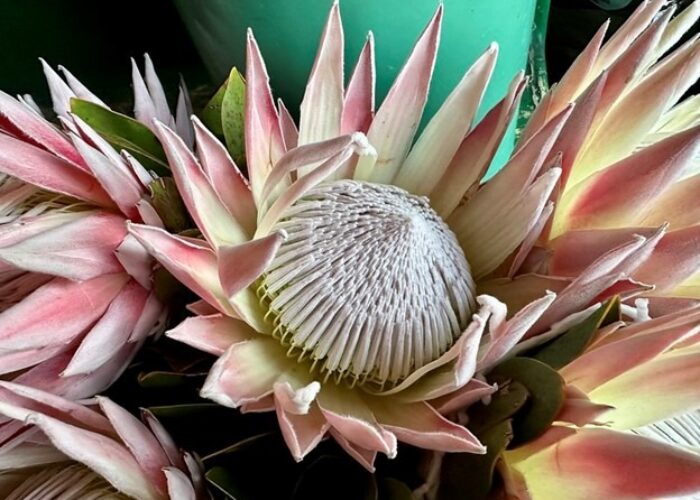Joseph and Rachel Givens serve with Mennonite Mission Network in Calais, France, at Maria Skobtsova House, where they, with other volunteers, offer temporary shelter to people fleeing persecution and poverty.
In the United States, Thanksgiving is a time to reflect on life and all the things that we’re thankful for. It’s a time when people join their families, often traveling cross-country, to spend time together and experience the joy of community.
But for U.S. citizens who live other countries, the second half of November can feel empty, without turkeys and cornucopias. And on the fourth Thursday in November, routine is not interrupted. Import suppliers in countries around the world sometimes report that stocks of frozen turkeys, stuffing, mac and cheese, green beans, and other seasonal foods sell out, as expatriates from the United States seek reminders of cherished moments spent with family in their home country.
But having a small meal with your immediate family isn’t the same, even if the favorite Thanksgiving foods are available. The world doesn’t stop, and your extended family is thousands of miles away. Video calls help take away some of the feeling of loneliness, but so much is missing.
My spouse, Rachel, and I are among the expatriates who choose a different way to celebrate. If we can’t be home for Thanksgiving, we bring Thanksgiving to those around us. So for the past two years, we’ve attempted to bring a bit of the spirit of Thanksgiving to Calais, France. Even though other nationalities may not understand the heart of what Thanksgiving means, they gladly participate and share with us in our celebration.
The traditional story of the first Thanksgiving is a myth that’s been told through generations. It wasn’t until the Civil War that Abraham Lincoln instituted Thanksgiving as an official holiday. Lincoln encouraged Americans to “commend to [God’s] tender care all those who have become widows, orphans, mourners or sufferers in the lamentable civil strife in which we are unavoidably engaged, and fervently implore the interposition of the Almighty Hand to heal the wounds of the nation and to restore it as soon as may be consistent with the Divine purposes to the full enjoyment of peace, harmony, tranquility and Union.” [Lincoln’s Thanksgiving Proclamation from October 3, 1863.]
This is at the heart of our desire to share Thanksgiving with the people we serve and the people with whom we serve. The population of people on the move in Calais is filled with “widows, orphans, mourners [and] sufferers,” who have fled from “lamentable civil strife” and for whom there is little opportunity for reprieve. We walk alongside people who have suffered unimaginable pain and hardship and have made a harrowing journey across many unwelcoming nations, to finally arrive in this place. Their resilience is inspiring, but, in their eyes, you can see that these sufferings have taken a toll. Many of them have lost loved ones or innocence along the way.
Sharing Thanksgiving in Calais is an opportunity to come together, if only for one day. It’s a time for us to thank God that we are all here alive and that we still possess the strength to carry on, despite the hostile environments some of us have experienced. It’s a time for us to thank God for those who remain.
We invite other associations that serve as places of hospitality to join us, as we open the doors of the Catholic church’s meeting hall on Thanksgiving Day. We order about 12 rotisserie chickens. Rachel and other people from the United States make traditional Thanksgiving dishes: sweet potato casserole, green bean casserole, pumpkin pie, pecan pie and stuffing. Members of other communities contribute their own dishes, as well, so we have tables filled with Danish rice pudding, English mince pie, French cheese and pastries, and Ethiopian, Iranian, and Iraqi dishes, alongside the typical Thanksgiving fare. The food is delicious, but it is only secondary to the spirit of joy and thankfulness.
I usually share some kind of introductory message, and then each person shares what they are thankful for, attempting to alleviate the language barriers, as much as possible. And then everyone eats their fill.
After the hunger is calmed, the festivities begin. Some of the men and boys go outside and play soccer. The women chat for hours, laughing and telling jokes and stories. Inevitably, someone plays music through one of the Bluetooth speakers, and dancing begins. People of various cultures attempt to teach one another their traditional dances. There is laughter, as we fail and look and feel awkward. But there is a joy in the awkwardness.
Together, we wash dishes and clean tables and floors. Then, everyone slowly departs, back to their lives of difficulty or work. The people on the move return to remembering their suffering and continue their quests of seeking a safe place to live. The workers return to the pain they feel at each news story blaming “migrants” for every societal ill and reports of lives lost at sea.
But our hearts are a little fuller. We are a little better equipped to face the struggles of life, reminded that there is truly no difference between the workers and the people we serve, except for the social constructs of nationality and the false values attached to skin color.
The moments shared are bittersweet, but the sweetness is what we remember.





